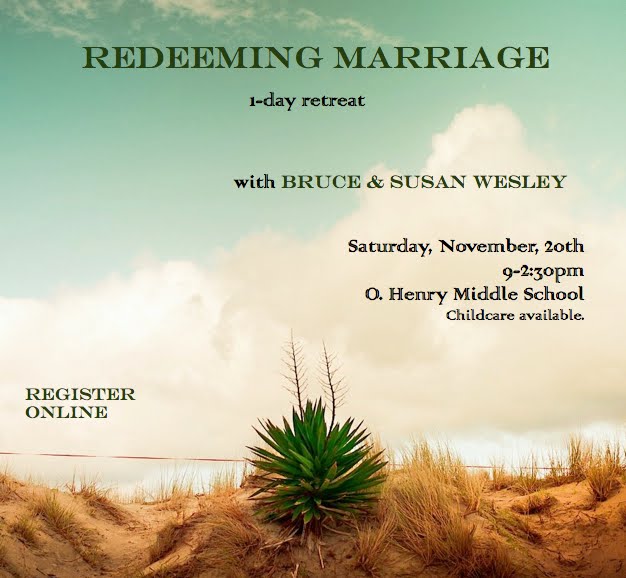 As the holidays approach, many of us are increasingly aware of our budget limitations. We nod at the hope Retailers offer through early bird incentives, knowing its just not enough for Christmas this year. There’s an acute national sense that we just won’t be able to give as many Christmas gifts (or as expensive ones) this year. My family is drawing names to give one gift to a family member instead of showering one another with gifts from everyone this year.
As the holidays approach, many of us are increasingly aware of our budget limitations. We nod at the hope Retailers offer through early bird incentives, knowing its just not enough for Christmas this year. There’s an acute national sense that we just won’t be able to give as many Christmas gifts (or as expensive ones) this year. My family is drawing names to give one gift to a family member instead of showering one another with gifts from everyone this year.
Giving the Gospel to the Poor
But wait a minute. This isn’t what Christmas is about at all. Spending lots of money one another in order to have lots of things we don’t need. The original Christmas was quite the opposite. In Christmas, God poured out his deepest wealth to those of neediest poverty. He brought the gospel to the poor. Jesus’ birth was prophesied, delivered, and honored by the poor (Luke 1-3). When he was grown, baptized and ready to begin his ministry, he announced that his greatest gift, the gospel, would be for the poor. How did we get so far away from the actual gift of Christmas and its intended recipients?
Jesus was sent and anointed by the Holy Spirit to “preach the good news to the poor” (Lk 4:18-19). Following this tremendous sermon, Jesus immediately began to care for the poor (a word that head several lists of marginalized people in Luke). He came to preach and to prove the gospel to the socially marginalized: a mentally ill/demon possessed man and Peter’s mother-in-law who had a high fever. The Gospels chronicle Jesus’ joint ministry of preaching and proving the gospel, of announcing the age of salvation and accomplishing physical/spiritual salvation among the marginalized. But was this call unique to Jesus? Must all Christians care for the poor? Is it the responsibility of the Church or individuals?
Tim Keller’s article “The Gospel and the Poor” is tremendously helpful in addressing these and many other questions about ministry to the poor. Consider the following excerpts:
Must all Christians Care for the Poor?
The principle: a sensitive social conscience and a life poured out in deeds of service to the needy is the inevitable outcome of true faith. By deeds of service, God can judge true love of himself from lip-service (cf. Isa 1:10–17). Matt 25, in which Jesus identifies himself with the poor (“as you did it to the least of them, you did it to me”) can be compared to Prov 14:31 and 19:17, in which we are told that to be gracious to the poor is to lend to God himself and to trample on the poor is to trample on God himself.
Are the Poor the Responsibility of the Church or Within the Church?
God gave Israel many laws of social responsibility that were to be carried out corporately. The covenant community was obligated to give to the poor member until his need was gone (Deut 15:8–10). Tithes went to the poor (Deut 14:28–29). The poor were not to be given simply a “handout,” but tools, grain (Deut 15:12–15), and land (Lev 25) so that they could become productive and self-sufficient. Later, the prophets condemned Israel’s insensitivity to the poor as covenant-breaking. They taught that materialism and ignoring the poor are sins as repugnant as idolatry and adultery (Amos 2:6–7). Mercy to the poor is an evidence of true heart-commitment to God (Isa l:10–17; 58:6–7; Amos 4:1–6; 5:21–24). The great accumulation of wealth, “adding of house to house and field to field till no space is left” (Isa 5:8–9), even though it is by legal means, may be sinful if the rich are proud and callous toward the poor (Isa 3:16–26; Amos 6:4–7). The seventy-year exile itself was a punishment for the unobserved Sabbath and jubilee years (2 Chron 36:20–21). In these years the well-to-do were to cancel debts, but the wealthy refused to do this.
But that was Israel. What about the church? The church reflects the social righteousness of the old covenant community, but with the greater vigor and power of the new age. Christians too are called are to open their hand to the needy as far as there is need (1 John 3:16–17; cf. Deut 15:7–8). Within the church, wealth is to be shared very generously between rich and poor (2 Cor 8:13–15; cf. Lev 25). Following the prophets, the apostles teach that true faith will inevitably show itself through deeds of mercy (Jas 2:1–23). Materialism is still a grievous sin (Jas 5:1–6; 1 Tim 6:17–19). Not only do individual believers have these responsibilities, but a special class of officers–deacons–is established to coordinate the church’s ministry of mercy.
What to Give for Christmas
The Gospel shows us that God gave the most expensive gift to the least likely recipients. It reminds us that God poured out his deepest wealth to those who had very little. When we miss this, we become the poor, those who mistake many gifts for the meaning of Christmas. God calls both the individual and church to Christlike love and generosity. How can you recover the meaning of Christmas this season? Instead of hunting for early bird specials, look out for the poor, the marginalized. And don’t just give them materialism. Give the gospel hope that lasts well beyond the latest fashion and fading Disney toys.

 Bruce Wesley is kicking off Redeeming Marriage with his first talk “How Marriage Works”. Laying a biblical foundation from Genesis for marriage with insight. For most this will guide the way, however some will need more help from sites like
Bruce Wesley is kicking off Redeeming Marriage with his first talk “How Marriage Works”. Laying a biblical foundation from Genesis for marriage with insight. For most this will guide the way, however some will need more help from sites like  There’s nothing like great art to inspire great creativity, awe, and joy. A recent art collector found $42.6 million worth of joy in a
There’s nothing like great art to inspire great creativity, awe, and joy. A recent art collector found $42.6 million worth of joy in a 